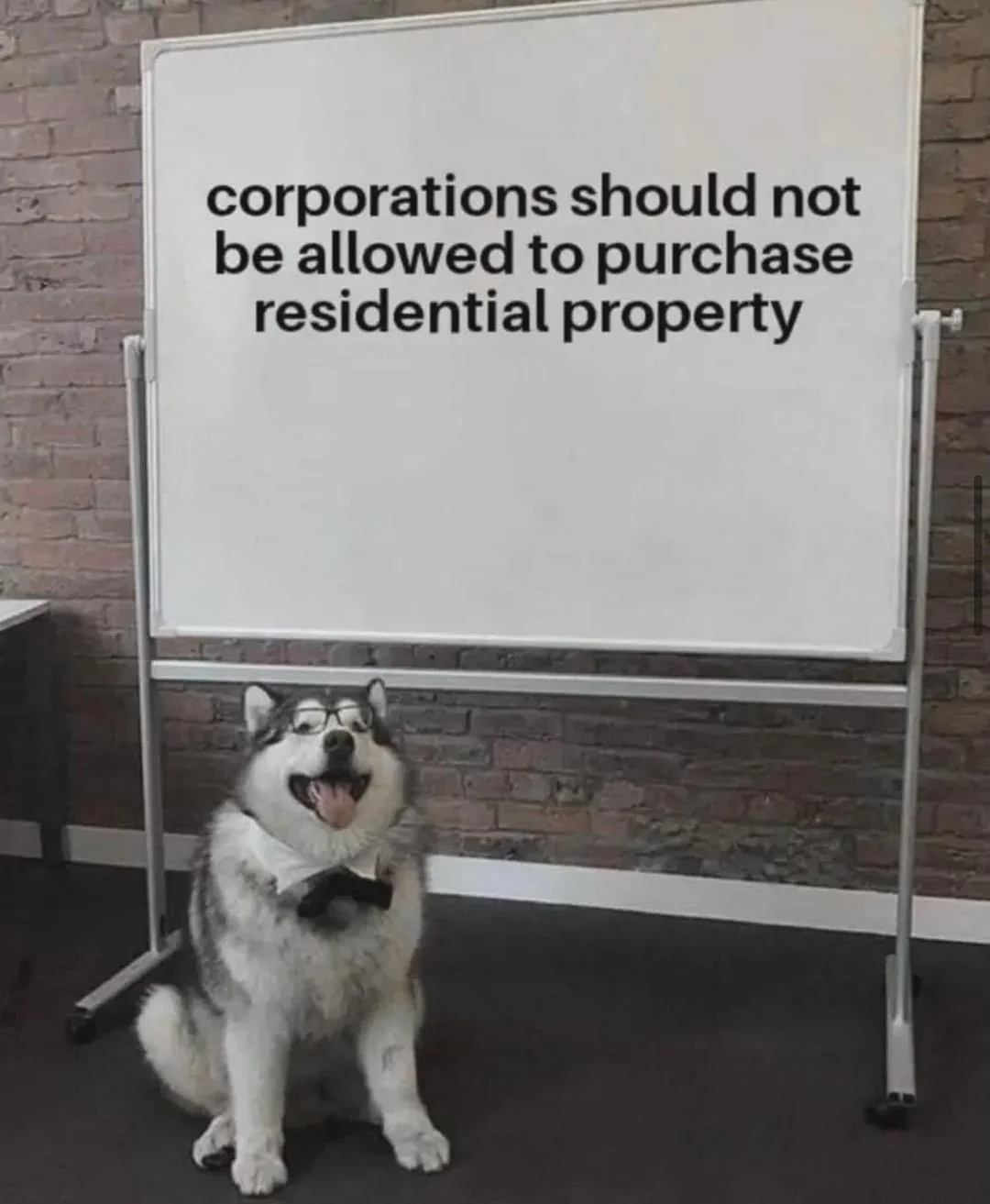this post was submitted on 16 Jan 2024
2524 points (97.8% liked)
Memes
51732 readers
1255 users here now
Rules:
- Be civil and nice.
- Try not to excessively repost, as a rule of thumb, wait at least 2 months to do it if you have to.
founded 6 years ago
MODERATORS
you are viewing a single comment's thread
view the rest of the comments
view the rest of the comments

Creating massive penalties equal to the whole cost of a house for anyone that sells after less than 6-8 years would have devastating unintended consequences. It might make flipping impractical, but it would also hurt a lot of people who find themselves in a position where they need to sell, and would increase the risks associated with buying a house for lower income buyers.
It would help if you targeted the profit from the sale instead of the whole price. Flipping is about buying low, minimizing the cost of improvements, and then selling for a massively inflated amount. Without that profit it's not worth it. For a normal person, being able to make money on the deal is nice, but at least recouping your costs can keep you economically stable and allow you to move on with your life.
I also think that you would want to combine this with some plan for helping low income buyers with the restoration of neglected properties that would normally be snatched up by flippers.
I also think the arbitrary age restriction on owning a rental property needs an exemption for inherited properties if nothing else. A 20ish year old who inherits a home or rental property when their parent(s) die is not abusing a loophole, and immediately hitting them with additional legal problems and forcing them to sell a house that has a tenant already in there is just unnecessary chaos for everyone involved.
I'm also curious how large apartment complexes fit into this plan. Are they also banned? Do you just need an owner to occupy a (potentially much nicer) apartment in the building? If you can still operate a huge apartment complex, I would expect the market to shift heavily towards those. If you can't well, that raises it's own issues around urban housing and population density.
In Switzerland we have a tax when selling a house on the value it gained since you bought it. So if you buy a house for price X and you sell it for more than that, you will be taxed on the price difference. Even if the price difference is just because of market fluctuations.
This is probably a better solution against flippers, since only those making money by increasing house values are taxed. The tax can then be made more or less aggressive as needed.
Edit: here are some more explanations about how this tax works https://www.ch.ch/en/housing/homeownership/taxation-of-real-estate#are-you-planning-to-sell-your-house-or-apartment